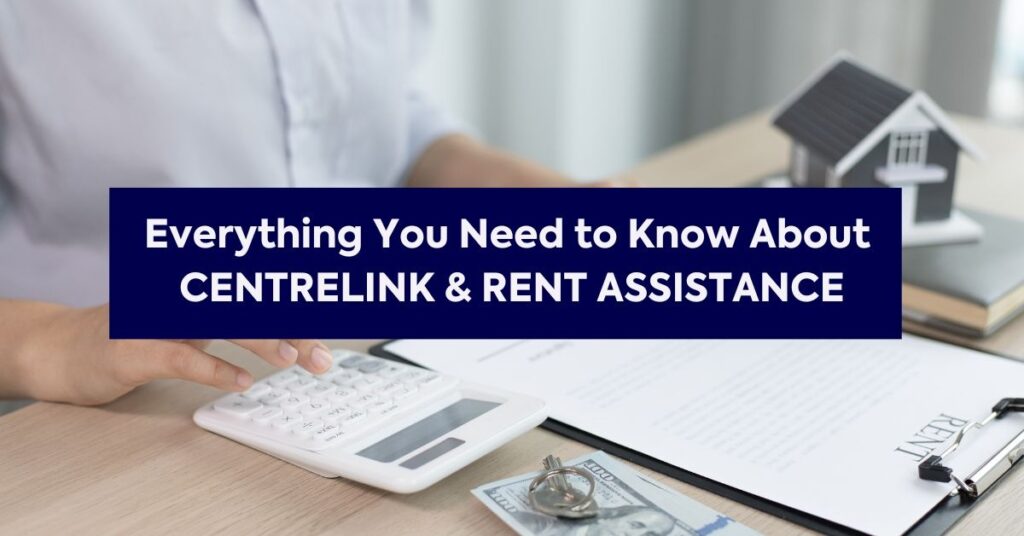Buying a home is a big deal, and for many Aussies, getting a home loan means dealing with Lenders Mortgage Insurance, or LMI. It’s that extra bit you pay if your deposit is less than 20% of the property’s value. Think of it as a safety net for the bank, protecting them if you can’t make your repayments. But what if you’re a professional with a steady, high income? Well, some lenders offer a way around paying this extra cost.
Understanding the LMI Waiver for Professionals List and Its Purpose
The LMI Waiver for Professionals List is basically a special deal offered by certain banks and lenders. It allows eligible professionals to borrow a larger amount without paying LMI, even if their deposit is below the usual 20% threshold. This can save you a significant chunk of money, potentially thousands of dollars, which can make a real difference when you’re trying to get into the property market.
Why do lenders do this? It’s a bit of a calculated move. They see professionals in certain fields as lower risk. These jobs often come with good salaries and stable career paths, meaning you’re less likely to default on your loan. By offering an LMI waiver, lenders aim to attract these reliable customers, hoping to build long-term relationships and secure their business for years to come.
Here’s a quick look at how much you could potentially save:
| Property Price | Loan Size (with 10% deposit) | Potential LMI Saving |
| $750,000 | $675,000 | $13,500 |
| $1,000,000 | $900,000 | $22,392 |
| $1,250,000 | $1,125,000 | $30,715 |
It’s important to remember that while this waiver can be a great help, it’s not a free pass. Lenders still have their own criteria, and you’ll need to meet specific requirements related to your profession, income, and financial history. Always check the fine print with your chosen lender.
So, in a nutshell, the LMI Waiver for Professionals List is a way for lenders to recognise the financial stability of certain careers and offer a more accessible path to homeownership for those individuals. It’s about making it a bit easier for people in demanding professions to get a leg up on the property ladder.
What Is LMI and Why Does It Matter
So, you’re looking to buy a place, maybe your first home or just an upgrade. You’ve got a deposit ready, but it’s not quite the full 20% lenders usually like to see. This is where Lenders Mortgage Insurance, or LMI, often comes into play. Think of it as a safety net, but for the bank, not for you.
Basically, if your deposit is less than 20% of the property’s value, most lenders will ask you to pay LMI. It’s a one-off fee that protects the lender if you, for whatever reason, can’t keep up with your loan repayments down the track. It’s not a small amount either; it can add thousands, sometimes tens of thousands, of dollars to the cost of your home loan. This makes it one of the bigger expenses you’ll face when buying property, right up there with stamp duty.
Here’s a quick rundown of why LMI exists and why it matters:
- Protects the Lender: LMI covers the lender’s losses if you default on your loan.
- Enables Lower Deposits: Without LMI, many people would need a much larger deposit (20% or more) to get a home loan, which could take years to save.
- Adds to Your Costs: It’s an extra expense that increases the overall cost of buying a home.
The amount you pay for LMI isn’t fixed. It depends on a few things, like how much deposit you have, the size of the loan, and the lender’s own rules. Generally, the smaller your deposit, the higher the perceived risk for the lender, and thus, the higher the LMI premium.
While LMI might seem like a bit of a rip-off because you’re paying for insurance that protects the bank, it’s also what allows many Australians to get into the property market sooner. Without it, the barrier to entry would be significantly higher for a lot of people.
It’s a bit of a trade-off, really. You pay this extra cost to get into your home sooner, rather than waiting years to save up that full 20% deposit. But, as we’ll see, there are ways some people can get around paying it.
How the LMI Waiver for Professionals List Helps Eligible Buyers
So, you’re a professional looking to buy a place, but your deposit isn’t quite hitting that 20% mark? That’s where the LMI Waiver for Professionals List can be a real game-changer. Basically, Lenders Mortgage Insurance (LMI) is that extra cost lenders slap on when your deposit is less than 20%, because they see it as a bit riskier. It can add up to thousands, sometimes tens of thousands, of dollars to your home loan.
This waiver means you can potentially skip paying that LMI altogether, even with a smaller deposit.
Think about it – that’s money you can put towards your new home, renovations, or just keep in your pocket. It makes getting into the property market a lot more accessible for people in certain careers who might otherwise be held back by this extra fee. Lenders offer this because they generally see professionals in specific fields as lower risk. They’ve got stable jobs and good incomes, so the lender feels more confident they’ll keep up with repayments.
Here’s a quick rundown of how it helps:
- Saves you money: The most obvious benefit is avoiding the LMI premium, which can be a significant chunk of change. For example, on a $750,000 loan with a 10% deposit, you could be looking at saving around $13,500 in LMI.
- Increases borrowing power: By not having to factor in the LMI cost, you might be able to borrow a bit more or simply have more funds available for the purchase itself.
- Faster entry into the market: For some, this waiver can be the difference between buying now or waiting years to save up that extra 10-15% deposit.
It’s not just about saving cash upfront. For lenders, offering these waivers is a way to attract reliable, high-earning customers. They’re hoping to build a long-term relationship, which could mean more business for them down the track with other financial products.
It’s a win-win, really. You get a better deal on your home loan, and the lender gets a customer they’re confident in. Just remember, while the waiver removes the LMI cost, you’ll still need to meet the lender’s other home loan approval criteria, like income verification and credit checks.
Who Qualifies Under the LMI Waiver for Professionals List in Australia
So, who actually gets a leg up with this LMI waiver thing? It’s not just for anyone, but it’s definitely aimed at professionals whom lenders see as a bit less risky. Think people with stable, high incomes and good job prospects.
Generally, you’ll find that lenders are looking at a few key areas. The big ones are usually:
- Medical Professionals: This is a pretty broad category. We’re talking doctors, surgeons, dentists, anaesthetists, and even vets. To get in, you usually need to be registered with AHPRA (that’s the Australian Health Practitioner Regulation Agency) and be actively working in your field.
- Legal Professionals: If you’re a lawyer, solicitor, or barrister, you might be eligible. Again, being a current, registered member of your state’s bar association or law society is pretty standard.
- Finance and Accounting Professionals: This includes things like accountants (CA, CPA, IPA members), actuaries, and financial analysts (like CFA charterholders). You’ll typically need to show you’re part of a recognised professional body.
- Engineering and IT: Engineers, IT Professionals (especially in senior or specialized roles)
There are often other professions that can get in on this, too, depending on the lender. We’re talking about people in:
- Mining, Resources, and Energy Sectors: Geologists, surveyors, geophysicists – if you’re in these fields, you might be considered.
- Entertainment and Media: Think actors, musicians, and professional athletes. Often, you’ll need to be represented by an accredited agent or manager.
- Other: Professional Athletes (often with accredited managers), Entertainment Professionals
A key thing to remember is that most lenders will have a minimum income requirement, often around $150,000 per year, to qualify for an LMI waiver. They also usually cap the maximum loan amount, often at $2 million, and might have a limit on the Loan-to-Value Ratio (LVR), typically 90%.
It’s not just about having the right job title. Lenders want to see a solid financial history and a good credit score. They’re essentially assessing your overall reliability as a borrower. So, even if your occupation is on a list, your personal financial situation still plays a big part.
It’s worth noting that not all lenders offer these waivers, and the specific list of eligible occupations can change. So, it’s always a good idea to chat with your bank or a mortgage broker to see exactly what’s available and if you fit the bill.
Occupations Commonly Included in the LMI Waiver for Professionals List
So, who actually gets a leg up with this LMI waiver thing? It’s not just anyone, but a good chunk of professionals in Australia can often skip paying Lenders Mortgage Insurance, even if they haven’t saved up that full 20% deposit. Lenders see these jobs as generally lower risk, probably because the folks in them tend to have pretty stable, high incomes. It’s a way for banks to attract these borrowers and build longer-term relationships.
Generally, you’ll find that professions in medicine, law, and finance are the ones most commonly considered. But it’s not just those three. We’re also seeing entertainment professionals and even some mining specialists getting a look in.
Here’s a bit of a breakdown of who often cuts:
- Medical Professionals: Think doctors, surgeons, dentists, anaesthetists, physiotherapists, and even vets. You usually need to be registered with AHPRA to prove you’re legit.
- Legal Professionals: This includes lawyers, solicitors, and barristers. Membership with your state’s bar association or law society is typically required.
- Finance Professionals: Accountants (like CA, CPA, IPA members), actuaries, and financial analysts often qualify. Again, belonging to a recognised professional body is key.
- Other Professions: This can sometimes extend to engineers, architects, IT professionals, and even those in the mining and energy sectors (like geologists and geophysicists). Some lenders might also consider entertainment professionals and athletes, provided they have representation.
It’s important to remember that while these professions are commonly included, each lender has its own specific list and criteria. You’ll often need to meet a minimum income threshold, usually around $150,000 per year, and sometimes there are limits on the loan amount or loan-to-value ratio (LVR) as well.
The main idea behind these waivers is that lenders feel more confident about lending to individuals in professions that typically have strong earning potential and job security. It’s a calculated move by the banks to secure reliable customers.
For example, a surgeon earning a good salary might be seen as a much safer bet by a bank than someone in a less stable industry, even if their deposit is a bit smaller. This is why having that professional registration or membership is so important – it’s the lender’s way of verifying your standing in a field they trust.
How to Apply for an LMI Waiver Through Your Lender

So, you’ve figured out you might be eligible for an LMI waiver because of your profession. That’s great news! The next step is actually getting that waiver sorted with your lender. It’s not usually something that happens automatically, so you’ll need to be proactive.
Here’s a general rundown of how it typically works:
- Talk to your lender or a mortgage broker: This is the most important first step. Not all lenders offer LMI waivers, and even those that do have specific criteria. A mortgage broker can be super helpful here, as they know the market and which lenders are more likely to offer these deals. They can also help you compare different home loans. You can start by looking into lenders that cater to professionals, like some of the big banks.
- Gather your documentation: You’ll need proof of your profession. This usually means providing evidence of your registration with the relevant professional body (like AHPRA for medical professionals or your state’s bar association for lawyers) and potentially recent payslips or employment contracts. Some lenders might have a specific list of eligible professions and require you to be a member of a particular association.
- Submit your home loan application: When you apply for a home loan, you’ll need to clearly state that you’re seeking an LMI waiver based on your professional status. Your lender will then assess your application against their specific LMI waiver policy. This often involves checking your loan-to-value ratio (LVR) and ensuring you meet their income and employment stability requirements.
- Loan assessment and approval: The lender will review all your documents and your financial situation. If everything checks out and you meet their criteria, they’ll approve your home loan with the LMI waiver applied. This means you won’t have to pay that extra insurance premium, potentially saving you thousands of dollars.
The key is to be upfront with your lender about your profession and your expectation of an LMI waiver from the outset.
It’s worth noting that some lenders might have different LMI waiver policies. For example, some might offer it up to a certain loan amount or LVR, while others might be more flexible. It’s also possible to get an LMI waiver through other means, such as the First Home Guarantee Scheme if you’re a first-home buyer, though this is a separate process.
Remember, lenders offer these waivers because they see certain professions as lower risk. They’re essentially trying to attract and retain clients they believe are financially stable and likely to repay their loans. So, having a solid employment history and good credit standing will always help your case, regardless of your profession.
Key Benefits and Limitations of the LMI Waiver for Professionals List

So, what’s the big deal with this LMI waiver for professionals? On the plus side, it can seriously cut down the upfront costs of buying a home. Imagine saving thousands, or even tens of thousands, of dollars that you’d otherwise have to fork out for LMI. This means you can potentially buy a more expensive property, or just have more cash left over for renovations or, you know, actual furniture.
The biggest win here is obviously the money you save on LMI, which can be a hefty sum.
Here’s a quick look at how much you might save:
| Property Price | Loan Size (with 10% deposit) | Potential LMI Saving |
| $750,000 | $675,000 | $13,500 |
| $1,000,000 | $900,000 | $22,392 |
| $1,250,000 | $1,125,000 | $30,715 |
It’s not just about the cash, though. Getting this waiver can also mean you don’t need to save up that full 20% deposit, which can take ages. This can get you into the property market sooner.
However, it’s not all smooth sailing. There are definitely some catches.
- Not all lenders offer it: Just because you’re a doctor or a lawyer doesn’t mean every bank will waive LMI for you. You’ll need to shop around.
- Strict eligibility criteria: You usually need to be a member of a specific professional body, and sometimes there are minimum income requirements, like earning over $150,000 a year.
- Loan limits can apply: Some lenders might cap the loan amount or the loan-to-value ratio (LVR), even with the waiver.
It’s easy to get excited about saving on LMI, but remember to read all the fine print. Lenders have their own rules, and what one bank offers, another might not. Always check the specific terms and conditions for any home loan you’re considering.
So, while it’s a fantastic opportunity for eligible professionals, it’s important to go in with your eyes wide open and understand both the upsides and the potential downsides.
Final Thoughts on Maximising Opportunities from the LMI Waiver for Professionals List
So, you’ve looked into the LMI waiver for professionals, and it seems like a good fit for you. That’s great! It really can make a big difference when you’re trying to get into the property market, especially if you’re a bit short on that 20% deposit.
The main takeaway here is that this waiver is designed to help people in stable, high-earning professions get a leg up. It’s not just about saving a chunk of cash upfront, though that’s a pretty sweet deal. It’s also about lenders recognising the lower risk associated with these careers. Think of it as a bit of a reward for your hard work and dedication in fields like medicine, law, or accounting.
Here are a few things to keep in mind as you move forward:
- Do your homework: Not all lenders offer the same waiver, and the eligibility criteria can vary. What one bank offers, another might not. It pays to shop around or chat with a mortgage broker who knows the landscape.
- Check the fine print: Make sure you understand exactly what’s required. This often includes being a registered member of your professional body and meeting certain income thresholds. Don’t assume anything!
- Consider the long game: While the waiver is fantastic for the initial purchase, think about how it fits into your broader financial goals. It might free up funds for other investments or simply give you peace of mind.
It’s worth remembering that the savings can be quite significant. For example, on a $1 million loan with a 10% deposit, you could potentially save over $22,000 in LMI. That’s a serious amount of money that can go towards renovations, furniture, or just building your savings.
While the LMI waiver is a fantastic tool for eligible professionals, it’s not a magic wand. It’s important to still have a solid financial plan and understand all the costs involved in buying a home. Don’t let the waiver distract you from responsible borrowing.
Ultimately, if you’re a professional who fits the criteria, exploring the LMI waiver for professionals list is a smart move. It’s a pathway to homeownership that can save you money and potentially open doors to better loan terms. Good luck with it!
So, we’ve reached the end of our chat about making the most of the LMI waiver for the Professionals List. It’s a great chance to boost your career! If you’re keen to learn more or want to chat about your next steps, head over to our website. We’re here to help you grab those opportunities.
Frequently Asked Questions
What exactly is Lenders Mortgage Insurance (LMI)?
Think of LMI as a safety net for your bank. If you borrow more than 20% of a property’s value for a home loan, meaning your deposit is less than 20%, the bank might ask you to pay LMI. It’s like an insurance policy for them, protecting them if you can’t make your loan repayments.
How does the LMI waiver help people buy homes?
An LMI waiver means you don’t have to pay that extra insurance cost, even if your deposit is less than 20%. This can save you thousands, sometimes tens of thousands, of dollars, making it easier and quicker to get into your own home.
Which jobs are usually on the LMI waiver list?
Lenders often offer LMI waivers to professionals they see as low-risk because they usually have good, steady incomes. This commonly includes people in fields like medicine (doctors, surgeons, dentists), law (lawyers, barristers), and finance (accountants, actuaries). Sometimes, people in entertainment or professional sports can also qualify.
Do I automatically get an LMI waiver if I’m a doctor or lawyer?
Not always. While these professions are often on the list, you usually need to meet other requirements. This might include being a registered member of your professional body (like AHPRA for medical professionals) and earning a certain minimum income. Each lender has its own rules.
How do I find out if I can get an LMI waiver and apply for it?
The best way is to talk to your bank or a mortgage broker. They can tell you which lenders offer LMI waivers and if your specific job and financial situation meet their criteria. They’ll help you with the application process if you’re eligible.
Are there any other ways to avoid paying LMI?
Yes, besides the professional waiver, you might avoid LMI if you have a 20% deposit or more. Also, schemes like the First Home Guarantee can help eligible first-home buyers avoid LMI, and sometimes a family member can act as a guarantor for your loan.











